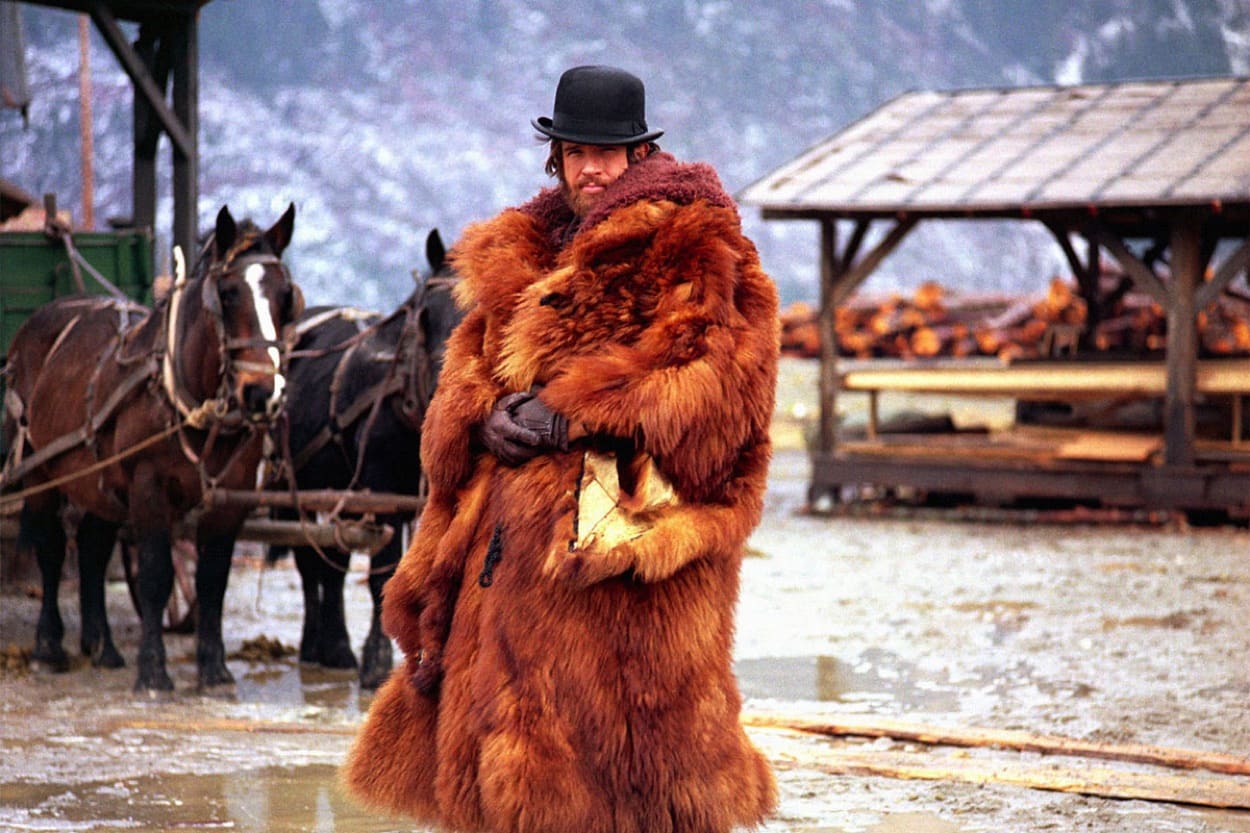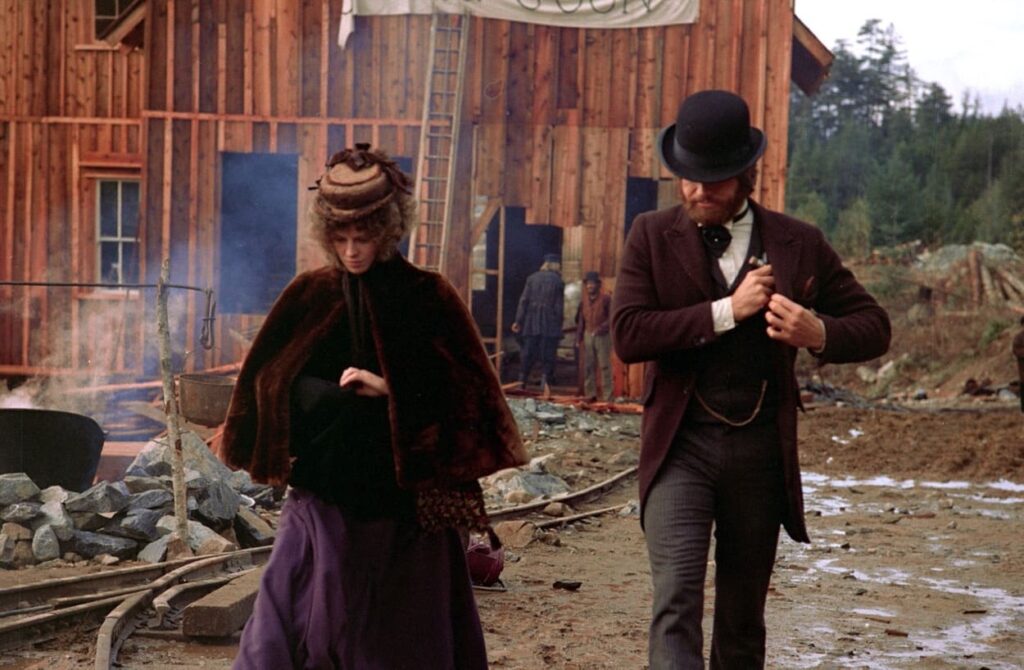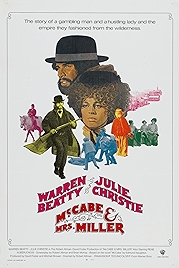The superb McCabe and Mrs Miller (generally styled McCabe & Mrs. Miller) was sold as a revisionist western when it came out in 1971. Its director, Robert Altman, went so far as to call it an “anti-western”. Even though Anthony Mann in the 1950s and Sergio Leone in the 1960s had paved the way with “revisionist” westerns of their own, the first reviews of Altman’s version of the revisionist western were harsh. Rex Reed of the New York Daily News called it, “an incoherent, amateurish, simple-minded, boring and totally worthless piece of garbage”, which is nailing your colours to the mast if nothing else.
Other critics liked, loved and raved over it. Pauline Kael called it a “beautiful pipe dream of a movie” and went into battle on its behalf, appearing on TV shows like The Dick Cavett Show to explain why the hot take of critics like Reed had been too hasty. Whichever way you lean critically, one thing is indisputable – with this movie Altman changed how westerns looked. Watch Kelly Reichardt’s First Cow, from 2019, for instance, and you can see McCabe and Mrs Miller’s dabs all over it.
Altman’s claim that it was an anti-western are only partly true. The story is a straight-up western just like John Wayne used to make. Card player John McCabe and sex worker Constance Miller go into business together – he runs the gambling side of the operation, she runs the whorehouse – and make such a go of it that some shady men arrive to make them an offer they can’t refuse. But McCabe does refuse, leading to a showdown on the streets of this town ironically named Presbyterian Church. Roll end credits.
It’s the way Altman does it that’s anti-western. This film is intimate, claustrophobic even. It’s dark, rainy and dirty. When the showdown comes it’s not staged between two impassive men standing out on deserted streets in the sun’s glare, but between guys scuttling about in the semi-dark, in the snow, on narrow streets.
Look at Warren Beatty’s acting as John McCabe – it’s almost anti-acting. He keeps his hat tilted over his face almost the entire time. We barely catch a glimpse of his eyes. He mumbles.
Julie Christie’s Mrs Miller is the same. Altman and Brian McKay’s adaptation of Edmund Naughton’s novel doesn’t present Mrs Miller as a victim, or as someone who’s been pressganged into whoring. She’s a prostitute because it’s a good way of making a living. Christie plays Miller as such, under-acting like Beatty, as a practical woman with a shrewd business brain.
Robert Altman’s idea was to make something that looked antique. His lighting cameraman, Vilmos Zsigmond, had a solution. Inspired by Freddie Young’s cinematography on Sidney Lumet’s underrated spy thriller The Deadly Affair, Zsigmond proposed flashing the celluloid negative – exposing it to a controlled blast of light – as a way of desaturating the colours (nowadays you’d just twiddle a knob). Altman was enthusiastic and together they used it as one of a number of techniques designed to make the film look like it had stepped out of its era (hairstyles notwithstanding).
“Poetic realism” Zsigmond called it, borrowing a phrase and a touch of the style from the masters of 1930s French cinema, but it’s done with intense naturalism bolted on. Those dark, underlit exteriors, because that’s how it was in those days, and the overlapping dialogue – an Altman staple – because people don’t naturally talk in “I speak, you speak” rhythms.
Also unusual is the quiet, mournful songs of Leonard Cohen on the soundtrack, which Altman got for a knockdown price because Cohen liked Altman’s previous movie, Brewster McCloud.
They help build the sense of intimacy, of a real place full of real people. The cast and crew lived in the town we see on screen, in the rough timber houses which were being erected as Altman was shooting. As Julie Christie told Roger Ebert in 1971: “The cast and crew lived in the buildings. It was uncanny; I think perhaps Presbyterian Church seems like a real place to the people in the movie because it was a real place for all of us.”
True, it is a bleak movie. Love is in short supply, though McCabe has the hots for the intensely transactional Constance Miller, and when death comes Altman makes sure it looks absolutely pitiless. Unlike most Altman movies, there’s not much in the way of humour – ironic or otherwise. Not much in the way of heroics either. And when they rear their head, someone pays a price.
It’s a classic, which is exactly what the perceptive said back in 1971. Not classic as in classically made, following the prescriptions laid down in the book, but a classic of the genre. McCabe and Mrs Miller once looked revisionist, now it just looks like a western, one of the very best.
McCabe & Mrs. Miller – Watch it/buy it at Amazon
I am an Amazon affiliate
© Steve Morrissey 2024


